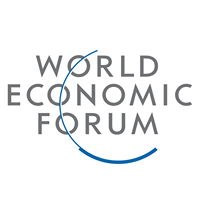Four Scenarios for the Future of Trade and Investment
The global policy outlook for trade and investment has
darkened over the past year
January 2019 / World Economic Forum Report
Trade conflict has proliferated, structural challenges remain and business sentiment has dampened. There is an urgent need for leadership to stop a potential slide into economic conflict that might undermine global growth and stability and outlook for trade. This briefing highlights four stylized scenarios that the world might move into in the near-to-medium term and flags the risks and opportunities associated with each. Geopolitical tensions have coupled with rising domestic discontent over globalization in some countries, calling into question the functioning of global economic institutions. The tariff has returned as a policy tool for managing trade relations, triggering tit-for-tat retaliation that risks spiraling into unconstrained protectionism and putting the World Trade Organization (WTO) at risk. Some underlying drivers of these developments have to do with the global technological race, uncertainties associated with China’s economic rise as well as mounting nationalism and populism in many parts of the world.
While the United States and China have made efforts to negotiate a truce to the ongoing trade confrontation, the reliance on unilateral and bilateral mechanisms raises the risk that the world might be moving towards a power rather than rules-based approach. Uncertainties associated with these geo-economic tensions have already had a negative impact on business and investor confidence, with potentially large and protracted disruptions to the operation of global value chains. Some moves have helped the world avoid what the Council called the “ugly” trade set-up in its 2017 briefing. The Comprehensive and Progressive Agreement for TransPacific Partnership came into force in the final days of 2018, signaling continued resolve among major economies to deepen integration and address 21st-century governance issues such as digital trade, state-owned enterprises and environmental protection. The European Union-Japan Economic Partnership Agreement, covering one-third of global gross domestic product, will follow suit in early 2019, as will the Africa Continental Free Trade Agreement, while the US-Mexico-Canada Agreement – the revised version of the North American Free Trade Agreement – was recently signed. Additionally, in the midst of WTO turmoil, the US, the EU and Japan are engaged in a trilateral conversation to address key trade governance concerns. Various other groups of economies are also spearheading initiatives to modernize global trade rules.

